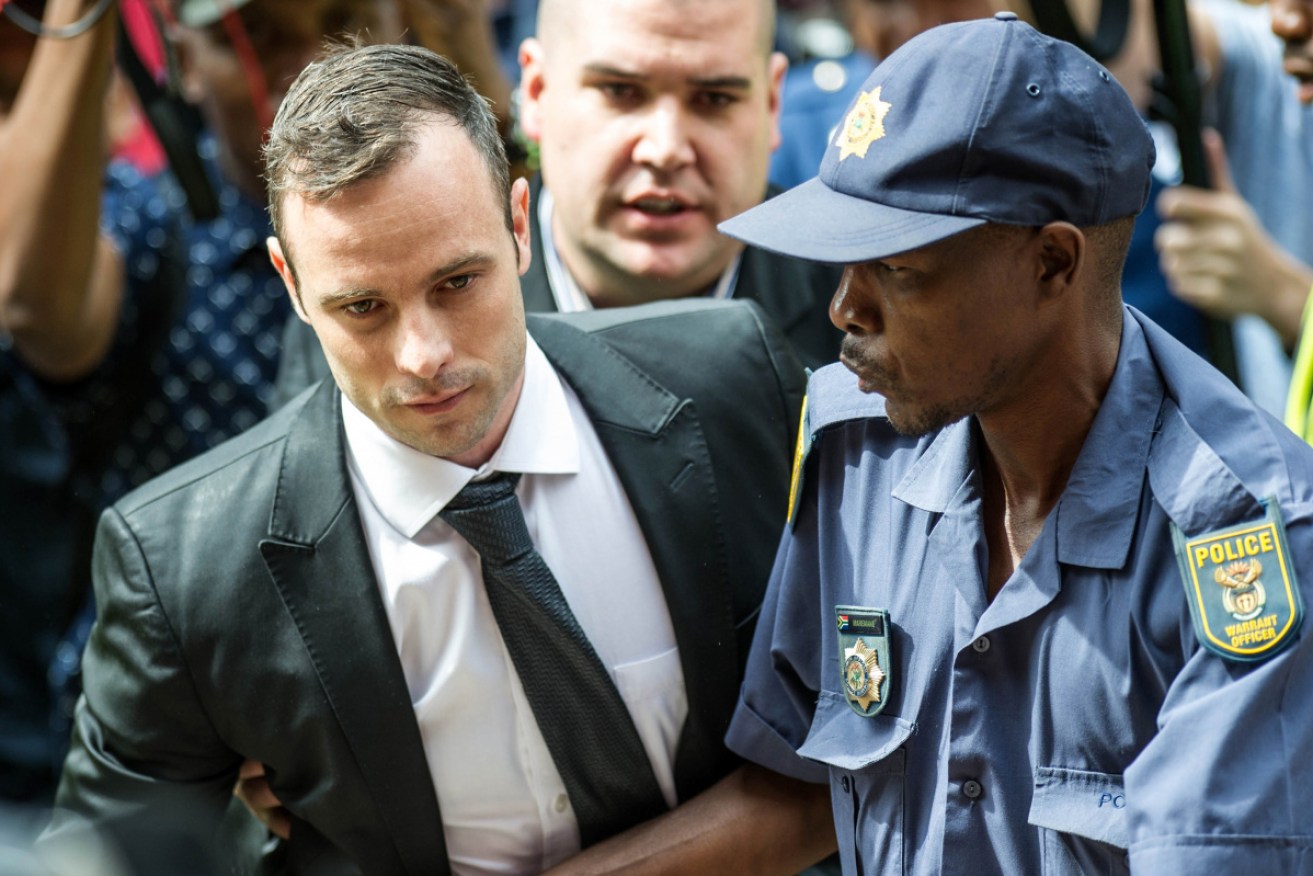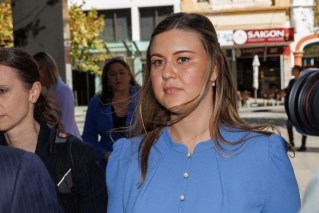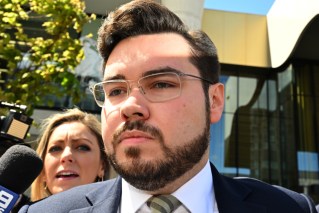Victim’s parents key to Oscar Pistorius parole bid

Oscar Pistorius was convicted of murder for shooting Reeva Steenkamp. Photo: Getty
Eight years after he shot and killed his girlfriend, Olympic runner Oscar Pistorius must meet with her parents to progress his parole application.
Pistorius, a world-famous double-amputee athlete who competed at the 2012 Olympic Games, has been eligible for parole since July.
He was convicted of murder for shooting model Reeva Steenkamp multiple times through a toilet door in his home on Valentine’s Day 2013.
The South African, who won multiple Paralympic medals between 2004 and 2012, was ultimately convicted of murder and sentenced to 13 years and five months in prison.
He became eligible for parole under South African law after serving half his sentence.
A parole hearing for Pistorius, 34, was scheduled for last month and then cancelled, partly because a meeting between Pistorius and Ms Steenkamp’s parents, Barry and June, had not been arranged, lawyers said.
Corrections department officials scheduled the parole hearing for October but it was called off when a full report on Pistorius’ time in prison was not available, said Julian Knight, a lawyer for the former athlete.
Barry and June Steenkamp want a face-to-face meeting with Pistorius before he is considered for early release, as is their right under South Africa’s victim-offender dialogue policy.
The Steenkamps have previously said they want to challenge Pistorius on why he shot their daughter, with victim-offender meetings aimed at achieving some kind of closure for families of victims of crimes.
“They feel that Reeva has got a voice. They are Reeva’s voice, and they owe it to their beloved daughter,” said Tania Koen, the Steenkamps’ lawyer.
The Steenkamps will also be allowed to make recommendations to the parole board, although Ms Koen would not say if they would oppose Pistorius’ release.
The opinion of victims’ families is considered by a parole board when deciding whether to release an offender, but is not the only criteria.
Mr Knight said he hoped a meeting between Pistorius and the Steenkamps, which must happen before a parole hearing, could take place by the end of the year.
It was a “huge surprise” for the Steenkamps when corrections services officials contacted them last month to say Pistorius was eligible for parole, Ms Koen said. They believed he would only be eligible in 2023, she said.
“[It] opens a lot of wounds, or rips off the plasters they had put on those wounds,” she said.
The multiple Paralympic champion was initially found guilty of culpable homicide – an offence comparable to manslaughter – for shooting Ms Steenkamp with his licensed nine-millimetre pistol. He claimed at his trial it was a tragic accident and he mistook her for an intruder.
Prosecutors appealed the manslaughter finding and secured a murder conviction.
Pistorius was sentenced to six years in jail for murder, but prosecutors again appealed what they called a shockingly light punishment for murder.
South Africa’s Supreme Court of Appeal then more than doubled his sentence in 2017.
-AAP








